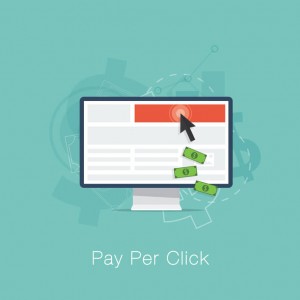The difference between character and reputation: Character describes one’s nature, but reputation reflects what people think a persons’ nature is. This applies to business as well. Search results can skew this so that one search result, accurate or not, can destroy peoples opinion of character (reputation). When this happens, the competition wins.
For today’s businesses, competition is everywhere. As consumers purchase more of their products and services online, competition is down the street, across the country, and around the globe. And it’s not just sales that businesses are competing for—it’s search engine placement, social media followers, page views, and more. All of this equates to online reputation.
With all the factors involved, how do you make sure you’re winning the game? Beating the competition online is necessary if you want your business to succeed, and the more integrated the web becomes in the marketplace, the more creative you have to get.
It’s no longer enough just to focus on your social media pages or your Google rankings. You need to cover all the angles, and you need your entire team on board. But most companies don’t have the staff and training to take it all on.
Knowing Your Place in the Market
Thanks to Big Data, there’s no need for guesswork anymore when it comes to competitive analysis in marketing. If anything, there’s way too much information. For example, a Google search for “competitive analysis tools” turns up over six million results — so how do you know where to start?
Here are some of the top tools and techniques for figuring out where you stand in relation to your competitors.
PageRank Checker: A simple method for deducing where you stand with Google’s PageRank system. The better the PageRank, the higher up you’ll appear in search results, so it’s important to monitor this number.
Alexa: Amazon’s Alexa software does more than just tell you where you can book a reservation for dinner. The intuitive program can also help businesses perform detailed competitive analyses and identify keywords and SEO strategies that can help you improve.
Website Grader: Search engines grade your site on a number of known and unknown factors, the sum of which determines how close you land in relation to the top of the search listings. Website Grader is an easy tool that can tell you where your website is going strong and where it is failing.
SemRush: Receive an analysis of the effectiveness of your keywords, ads, search engine traffic, and more, and see how they compare to those of your competitors.
Branding Yourself
You can’t beat the competition if you don’t have a firm concept of your brand, and how it fits into the marketplace. Your “brand” is much more than just the name of your company and a cool color scheme (you can find cool color schemes using Adobe’s awesome tool BTW). Your brand is a reflection of the values and experiences that your business encompasses. In order to accurately define your brand, explore the following questions:
- What are your skills? What are you offering your clients, and what do you do best? What are you an authority on?
- Who are your customers? What makes them different than the customers of other types of businesses? What are their demographics, likes, dislikes, and search habits?
- How are you different? What do you offer that your competitors don’t? Why should a potential customer work with you instead of a similar business?
Be as specific as you can when you answer these questions. Not only will they help you center in on your brand’s identity, they’ll help you figure out in what arena you’re competing.
A bad Yelp review lingers years after the offending waiter has been dismissed
Celebrate the things that make your brand unique, and highlight them in creative ways online. Educate your employees, too. It’s important to make sure that everyone who works for your company is on the same page when it comes to your brand identity and values. The more consensus across the various departments, the better you can all work together to build something great. A bad Yelp review lingers years after the offending waiter has been dismissed. So getting this right is important.
Defining Your Competitors’ Brands
It’s not enough to know who you are—you need to know who you’re up against. Consider the same questions you asked yourself when defining your own brand and ask them about your competitors.
Using the same online marketing tools listed above, plug in your competitor’s websites and see how they’re functioning. Type in the search queries that you want to lead to your own site, and perform analyses for all those that rank above you. These are the ones to beat.
Your competitors are researching you too
It may seem counterintuitive to spend so much of your own strategy planning analyzing the websites, structures, and practices of your competitors, but it’s necessary if you want to not only do better for yourself, but do better than them.
Beating the competition online is as much a game as it is a marketing plan. Learn as much as you can about your opponents, because chances are, they’re doing the same about you.
Improving Your Spot in the Online Marketplace
Improvement in the online marketplace can seem like an overwhelming initiative when you start to explore the breadth of tactics and tools out there. But all it takes is attention, creativity, and action to make your business a more competitive player.
Here’s where you should put your focus:
Content
From web and advertising copy to social media and supplementary print materials, what’s being published about your brand becomes your brand. Just because your company isn’t a media publication doesn’t mean people can’t go there for advice and insight. Think about the topics that you associate with your brand and that you would consider yourself an expert in, and then create (or hire someone to create) quality content on those subjects. Incorporate visual features like images and video wherever you can, as these can have a huge effect on where your page ranks in search listings.
Backlinks
The more relevant websites that link back to you, the better you’re going to perform in search. Once you have shareable content on your site, connect and partner with other reputable sites and ask them to share your content and link back to you. Another method for acquiring backlinks is to offer your services as a guest contributor. Write relevant, clean copy and incorporate a link back to your site in a way that is not overly advertorial (for that, you may have to pay an ad fee).
SEO
There’s no point in producing quality content if it’s not going to be seen by anybody. You need to modernize your SEO strategy in a way that accurately depicts what you’re trying to say and puts it in the running against other, similar types of material. Pay more attention to image filenames, captions, tags, and keywords, and you should notice a boost in your rankings.
Social media
Any social media strategy should have a two-pronged approach: building a community and encouraging active engagement. Your social media pages aren’t just a place for you to rack up followers; after all, what good are followers if they’re not interacting with you? Instead, treat your pages like places where you and your followers can engage with each other. Listen to what they have to say, respond in kind, and promote your brand’s identity. Then you can focus on turning your social media presence into sales.
Reviews

We’re often asked to improve the reviews of companies that aren’t ready for that yet. They’re not ready because they are still offering sub-par service. In other words, stop the bleeding first – then work on improving reviews.
Others ignore bad reviews for too long. Never underestimate the power of a bad review. While good reviews can act in your favor, a bad review is almost certain to lose you a potential customer. Most negative feedback can be resolved by a conscientious response (and action, where appropriate) on your end. Use review management software like ReviewJump and TalkWalker to monitor your company’s name and respond to feedback quickly. The better handle you can get on online reviews, the better you can stay ahead of the competition.
The Importance of Customer Service
What separates the bad companies from the good companies online isn’t just the products and prices they offer. It’s how they communicate with and treat their customers.
This may arguably be the one facet of business that has remained constant in light of the other changes that came with the digital era. Nurturing good customer experiences is key if you want to edge out your competitors and continue to attract and keep clients. You can define your brand on paper, but it’s how you operate that actually tells people who you are.
Remember: there is such a thing as too much attention paid to your customers. Don’t overload them with twice daily emails just because you don’t want them to forget your name. Find the balance within your customer demographic for how often and by what methods you should be reaching out to them. Strategize the best ways to connect and what kind of information your customers need. Become a reliable, go-to source for quality content and services.
Beating the competition online isn’t easy, and it isn’t quick. But like any other strategic plan in business, the benefits are absolutely worth it. Invest time, money, and human effort into improving your position online and you’ll see a powerful snowball effect for years to come.
Digital & Social Articles on Business 2 Community(17)







